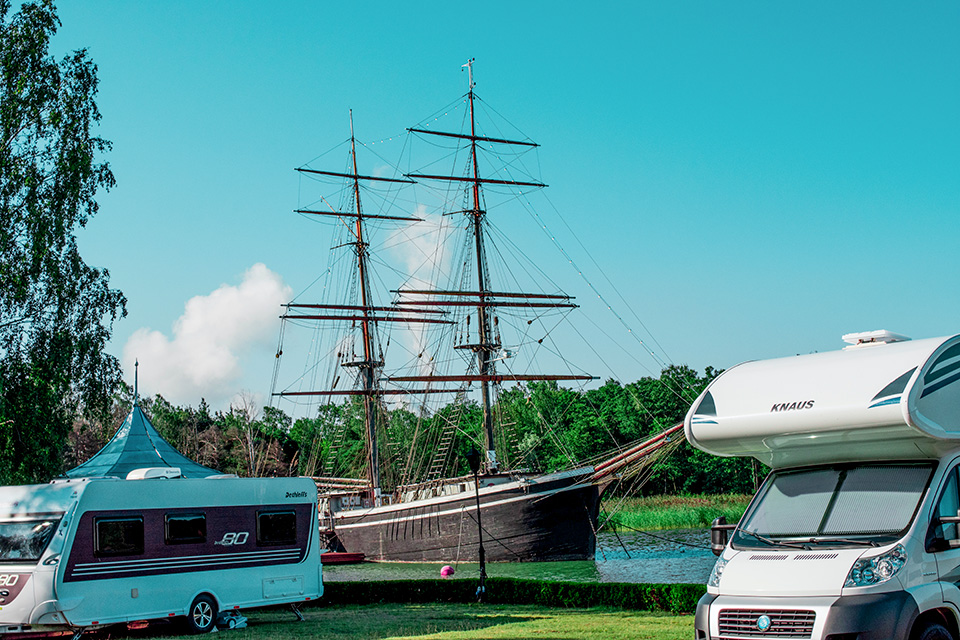
Fishing is increasing in popularity, and almost 50 million people now go fishing at least once every year — the highest numbers since 2007, the most recent U.S. Fish and Wildlife Service survey reveals. Many anglers eventually choose to invest in an RV to travel further afield on longer fishing trips and ultimately spend more time on or near the water. With an RV, you’ll be able to pursue your love of fishing in greater comfort with a cozy bed, hot food and drinks, and indoor shower and toilet facilities. It’s important to consider your unique needs and options to choose the right RV that helps you make the most of your fishing trips.
Choosing the right RV for your fishing needs
Before investing in an RV, you need to make sure it’s the right decision for you as an angler. Consider where you actually want to go fishing in your RV — do you have plenty of public land near water within reasonable driving distance? Do these areas include free or affordable camping spots within your budget? If so, you’ll need to look for an RV that can last on the road for at least several days.
Your RV should also be comfortable enough for your needs over the course of your fishing trip. For example, if you’re a competent cook and want the capacity to create delicious, elaborate meals with your catches, a fully-equipped kitchen complete with residential fridge, induction cooktop, microwave, and deep sink with a pull-down sprayer may be a necessity. And, if a good night’s sleep is important to you after a long hard day on the water, a queen-size bed with a proper mattress may also be essential. In this case, you may want to opt for a Class A motorhome, which is designed with comforts of home in mind, and the biggest type of RV available. Moreover, most, if not all, Class A and Class C motorhomes are capable of pulling an average-size fishing boat if you need it to do so (you’ll find most motorhomes can pull at least 4000lbs, and some as much as 5000lbs). However, if you plan on towing a fishing boat with a Class B motorhome (the smallest type of motorhome), you’ll have to check its towing capacity beforehand.
RV plumbing: washing and cooking your catch
Running water will make your time spent in the RV a more luxury experience — not to mention provide you with the means to wash and cook your catch at the end of the day. In general, most RVs typically have a fresh water tank that holds the clean water used by the shower and sink; a gray water tank for dirty water from the drain; and a septic tank for toilet waste. When you’re staying at campgrounds with water facilities, all you need to do is connect your RV’s freshwater drinking hose to the campground water hook-up. You’ll then also need to change your water system settings to connect with city water. Alternately, if you’ll be boondocking (camping somewhere without hook-ups) be sure to top up the fresh water tank in advance.
You also need an RV water pump to ensure your fresh water has enough pressure. However, when cleaning your catch, be careful the water pressure isn’t too high, as it could end up damaging the delicate fish meat. Additionally, an RV water heater will help ensure you have water hot enough to wash your utensils safely after working with raw fish. You’ll also be thankful to have a hot shower ready and waiting when you need to wash off. Most RV parks and campgrounds have stations for dumping waste and waste water, which you’ll need to do at the end of the day.
Hard water may also be an issue for anglers traveling in an RV. High in minerals like magnesium and calcium, hard water is commonly found throughout the U.S. and can stain your water fixtures, dishes and kit, as well as dry out your hair and skin. Cooking with hard water even has the potential to ruin your hard-won catch: the dissolved minerals within the hard water tend to change the texture and appearance of food, and can result in tougher fish and vegetables. Fortunately, however, a portable RV water softener can eliminate hard water issues on the road while being quick and easy to install. If you have limited space, look for a softener with a compact design. Useful features like a carry-handle, large opening, and anti-spill technology can also increase convenience and ease of use.
Storing your kit on the road
Most importantly, your RV should have enough room for your fishing equipment. Fortunately, there are essential items that can help you maximize the limited space in your RV. For example, a travel rod and rod travel tube are designed to be compact and easy to travel with. Smaller storage containers, fishing pouches, and boxes for flies and lures also take up minimal space, and help limit the amount you pack. This can help you take only the essentials for your trips, which may be especially difficult if you have no shortage of gear to choose from. Don’t forget to invest in a portable grill — many RVs actually come with them. With a portable grill, you’ll be able to enjoy the fruits of your labor at the end of the day. Grills can be either electric, charcoal or gas, and come in a variety of sizes to suit all budgets.
RV life can help you take your passion for fishing to new heights. With a trusted RV, you’ll have unlimited freedom to move around from place to place in total comfort while chasing fish in new water. By considering your unique needs and options, you’ll be able to choose the right RV that helps you make the most of your fishing trips.